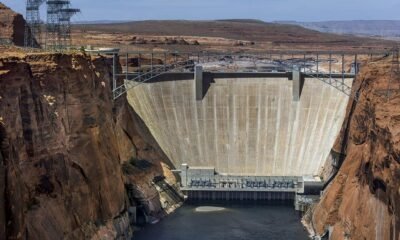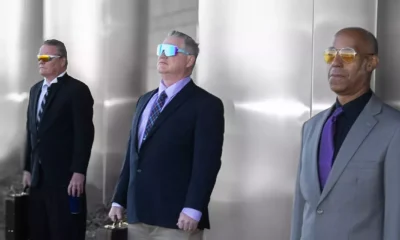arizona
Arizona Counties Cut Off Access to Crucial Vote Casting Records, Hurdling Result Analysis

Following Kari Lake’s defeat in the recent U.S. Senate race, doubts surrounding the election results have intensified. Some skeptics suggested election fraud, questioning why many Trump supporters would vote for Democrat Ruben Gallego instead of Lake. In previous elections, analysts could counter these allegations with data from the cast vote record, an electronic log detailing each ballot cast. However, counties are now withholding this data, arguing it is not a public record.
Many analysts, like Tucson’s Benny White, express concern over this limited access. White highlighted the importance of releasing the cast vote record for ensuring election accuracy and addressing fraud claims. “If we are serious about making our elections accurate, we must publicly audit the results more comprehensively,” he stated.
Arizona law regarding the status of the cast vote record remains ambiguous. Without an opinion from Attorney General Kris Mayes, counties face uncertainty in determining whether these records must be disclosed. As a result, the challenge for voters seeking insight into election outcomes has become a fragmented battle across different jurisdictions.
This struggle reflects a broader national dialogue on election transparency. In Pennsylvania, courts recently ruled that while cast vote records aren’t considered public records, images of mail ballots are. The cast vote record usually appears as a spreadsheet, with each row representing a ballot and columns showing voting choices. While it does not directly link voters to their ballots, combining it with voter registration data could potentially identify individual vote choices.
Maricopa County is currently preparing a redacted cast vote record for White, though he noted its heavy redaction hindered thorough analysis. Such incomplete data could sow mistrust in electoral processes, according to White. Policymakers have attempted to clarify legislation surrounding the release of these records but met opposition from voting rights groups concerned about privacy.
As the legislative session commenced, the future of cast vote record legislation remained uncertain. State Senator Ken Bennett, a key advocate for the bill, lost his seat in the July primary, leaving its sponsorship in question. Alex Gulotta, the director of All Voting is Local in Arizona, criticized counties for making inconsistent decisions and emphasized the need for clearer legislative guidance on the matter.
Opponents of broader access to cast vote records argue that such practices might undermine the federal guarantee of a secret ballot. Certain states permit the release of these records, but the risk remains that individuals could potentially discern how some voted by analyzing insufficiently redacted datasets.
A recent study examining a past election in Maricopa County revealed that less than 0.2% of voters’ choices could be inferred through data combination. This indicates the potential for privacy breaches when viewing specific data sets, even though most information already exists through public reports. In small precincts, the risk of revealing voter choices heightened when turnout was low.
In Arizona, existing state law restricts the release of electronic ballot data but does not clarify the scope of that restriction. Consequently, counties cite various statutes to justify withholding records, while voting rights advocates argue for transparency. John Brakey from Audit USA, a group pushing for election accountability, noted that state law enacted in 2017 aimed to prevent manipulation but did not specifically restrict cast vote records.
The legal tug-of-war over access to cast vote records continues, highlighted by a recent lawsuit following Audit USA’s requests in Santa Cruz County. While the county contends that these records do not equate to traditional election reports, debates persist over their classification and accessibility.
With a backdrop of previous agreements to disclose cast vote records from Pima and Maricopa counties, new concerns regarding privacy have led to stricter redactions in recent requests. The evolving dynamics around cast vote records emphasize the delicate balance between transparency and voter protection in Arizona’s election landscape.

















